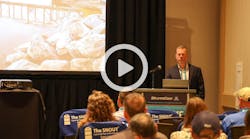
We’ve talked a lot online and in the magazine about what to do following a wildfire: how to stop the bare soil from moving, how to revegetate quickly, and how to prevent or at least minimize the flooding and landslides that so often follow. Now California—a state that’s repeatedly experienced the “biggest in its history” fire during the last year, only to see it followed a month or two later by another even larger one—is investing money not just in recovery efforts but in prevention.
Last week, the state’s governor signed a bill that includes two significant actions with regard to wildfires, as this article describes. First, it increases state spending on fire prevention by $1 billion over the next five years. The money will be spent mainly in clearing brush—potential fuel—from at-risk regions, particularly rural foothill areas. Much of the clearing will be accomplished through prescribed burns. This is a reversal of long-standing policy of aggressively suppressing all fires in these regions that would have thinned out the undergrowth.
The bill also changes how landowners can deal with trees on their own property. Previous laws have limited logging activity on private lands, but the new bill allows landowners to remove small and medium-sized trees in an effort to reduce potential fuel and will also allow them to build temporary roads to reach overgrown areas that need to be thinned. The landowners will be allowed to sell the timber they cut to reduce fire risk.
Another, more controversial aspect of the bill limits the amount of liability utilities have for wildfires and increases how much of the cost they can pass along to their customers. Some electric utilities, such as Pacific Gas and Electric and San Diego Gas and Electric, have been held responsible for fires caused by downed power lines. Under the new law, such companies will have to file more detailed fire mitigation plans with the state, showing what they’re doing in terms of vegetation removal and emergency response. When a fire does occur, a utility can pass costs along to ratepayers “but only to the extent that regulators determine the company wasn’t negligent.”
Western Water Summit Call for Speakers Is Open
The Western Water Summit will take place February 6–7, 2019, in San Diego, CA. It focuses on all facets of water management: groundwater, surface water, wastewater, drinking water, irrigation, water law, reuse, generation, restoration, conservation and efficiency, and erosion and sedimentation. The Call for Speakers is open until November 1. Find more information about the conference tracks and registration at www.westernwatersummit.com.
About the Author
Janice Kaspersen
Janice Kaspersen is the former editor of Erosion Control and Stormwater magazines.

